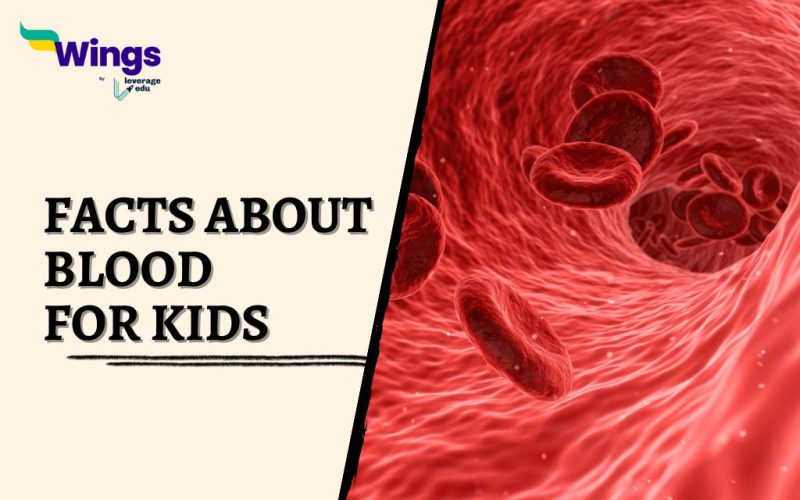Blood, the crimson fluid that courses through our veins, is a vital component of the human body. It performs a myriad of essential functions, from delivering oxygen and nutrients to cells to removing waste products. In this article, you will get to know some interesting facts about blood, shedding light on its composition, functions, and intricacies that make it such a remarkable substance to improve your general knowledge in a fun way.
Table of Contents [show]
10 Interesting Facts about Blood in Human Body
Have you ever wondered about the mysterious liquid that sustains life within our bodies? Let’s delve into the fascinating world of blood by reading the facts about blood listed below –
- Blood is the only tissue in the body that flows.
- Blood is the essential fluid that circulates through the body’s blood vessels, sustaining life.
- They help protect the body from diseases and infections.
- Individuals with O-negative blood are encouraged to donate regularly to help ensure a sufficient supply.
- Blood is a vital fluid that circulates throughout the body, carrying oxygen, nutrients, hormones, and waste products. It consists of plasma, red blood cells, white blood cells, and platelets.
- Blood removes waste products and carbon dioxide from the body tissues.
- Blood is composed of two main components: Plasma and cells.
- Blood cells are primarily produced in the bone marrow. This soft, spongy tissue is found within bones.
- O negative blood type is often referred to as the “universal donor” because it can be transfused into people with any blood type.
- Blood cells, namely – Red blood cells (erythrocytes), White blood cells (leukocytes), and Platelets perform various essential functions within the body.
- A complete blood count (CBC) is a common blood test that measures the number, size, and maturity of the different blood cells in a specific volume of blood.
- O negative is one of the rarer blood types, making it particularly valuable for blood banks.
- Plasma is the yellowish fluid that makes up about 55% of blood volume.
- The ABO and Rh systems are the most common blood typing systems.
- Certain blood types may be associated with a higher risk of certain diseases.
Quick Reads
| What is the Full Form of CO2 | What is the Full Form of CBC |
| Interesting Facts about Heart | Human Body Facts for Students |
Fun Facts about Blood Donation
Do you know a typical blood donation procedure takes too much time? Or in how many days a donor can donate blood? To know all the answers to these questions read the facts mentioned below –
- Donating blood can help individuals in need of transfusions.
- The blood donation process is generally safe and minimally invasive.
- A typical blood donation takes about 45 minutes.
- Most countries have age restrictions for blood donation, typically between 18 and 65 years old.
- Donors can typically donate every 56 days.
- Donors must be in good general health and meet specific health criteria.
- There are minimum weight requirements to ensure sufficient blood volume.
- Regular blood donation has been associated with certain health benefits, such as a lower risk of heart disease.
- Blood donation is a way to participate in community service and help others.
- There are minimum weight requirements to ensure sufficient blood volume.
GK Quiz on Blood
Test your knowledge about the blood! Choose the correct answer from the given options and complete it by adding check your answers from the answer box given at the end.
Q1: What is the colour of blood?
| A. Red |
| B. Blue |
| C. Green |
| D. Purple |
Q2: What carries oxygen throughout your body?
| A. Your bones |
| B. Your muscles |
| C. Your blood |
| D. Your skin |
Q3: What helps your blood clot when you get a cut?
| A. Red blood cells |
| B. White blood cells |
| C. Platelets |
| D. Plasma |
Q4: What is the liquid part of the blood called?
| A. Plasma |
| B. Serum |
| C. Juice |
| D. Water |
Q5: Which blood type is considered the universal donor?
| A. O positive |
| B. AB negative |
| C. O negative |
| D. AB positive |
Answer Key
| 1. A) Red |
| 2. C) Your blood |
| 3. C) Platelets |
| 4. A) Plasma |
| 5. C) O negative |
Also Read – Interesting Facts About Skin
FAQs
The most unique thing about blood is the only tissue that flows throughout the body.
One of the many fun facts about blood types is – the rarest blood type is AB-negative.
Blood is made up of red blood cells, white blood cells, platelets, and plasma.
Relevant Reads
| Facts About Nails | Incredible Human Body Facts |
| 25+ Interesting Facts About Brain for Kids | Interesting Facts About Hair |
| Psychology Facts About Human Behaviour | Scary Facts About Death |
Hope you like reading the most interesting facts about blood. If you want to know more about topics like this, then visit our Interesting Facts and General Knowledge page!
 One app for all your study abroad needs
One app for all your study abroad needs















 45,000+ students trusted us with their dreams. Take the first step today!
45,000+ students trusted us with their dreams. Take the first step today!
